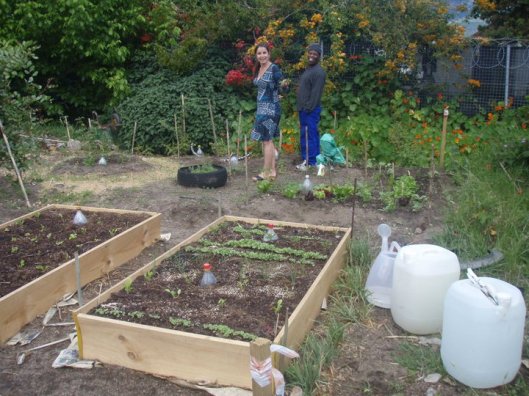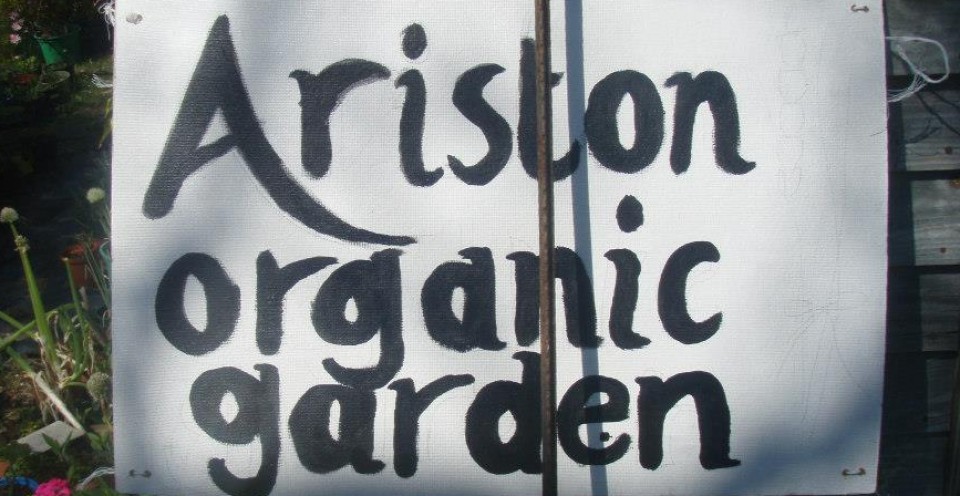 Here we have Stacy Pearson and Tony in their allotment garden of old, showing off their raised beds.
Here we have Stacy Pearson and Tony in their allotment garden of old, showing off their raised beds.
There are many reasons why you should grow your vegetables in raised beds.
ADVANTAGES OF RAISED BED GARDENING
- Better drainage
Growing plants in raised beds is a logical choice for gardeners with heavy, poorly drained soils. Raised beds permit plant roots to develop in soil held above water-logged or compacted zones. This provides a more optimum soil environment for root growth. As beds are built up, compost or other forms of organic matter may be incorporated, further improving soil structure, drainage and nutrient-holding capacity.
- Higher yields
Better root growth from improved soils leads to higher yields for food crops and lusher growth of ornamental plantings. Also, intensive planting in raised beds means more plants can be grown in a smaller area than with conventional row-cropping techniques. No space is wasted between rows.
- Expanded growing season
Better drainage speeds soil warming and allows earlier spring planting. In wet seasons, soil dries out faster, permitting planting to proceed between rains.
- Maintenance
Because plants are growing above the level of foot paths, less stooping is required for weeding, watering and other chores. Intensively planted raised beds (the strategy I prefer) provide dense foliage cover, shading out much weed growth.
- Using difficult sites
Raised beds make gardening possible on sites where growing plants would otherwise be impossible or very challenging. Rooftop gardens, gardens on slopes and raised beds on top of solid rock are examples.

Wonderful!
LikeLike
thank you Arthur 🙂
LikeLike
Reblogged this on Old School Garden.
LikeLike
thank you Nigel for the reblog 🙂
LikeLike
you’re welcome- I’m posting a series about school gardening and one for next Monday covers design , including options for planting – raised beds being a good option, so thank you!
LikeLike
good luck with that. My pleasure 🙂
LikeLike
Reblogged this on aristonorganic.
LikeLike
I love raised beds too!
LikeLike